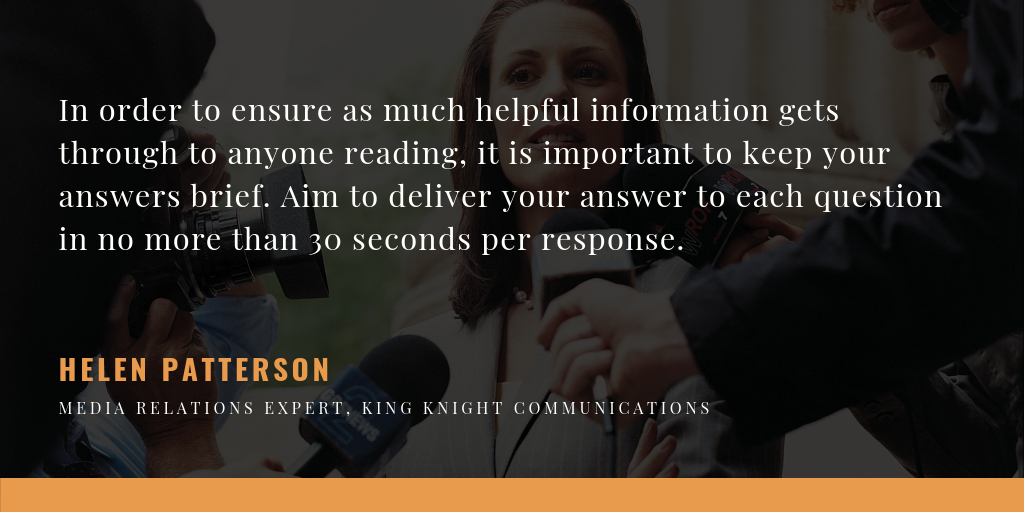10 Tips for a Better Media Interview

Helen King Patterson, APR | Twitter @HKKnight
In our world / industry, most media interviews are conducted over the phone. It is essential to take the time to be prepared. Here are some tips to help you prepare for the interview ahead of time and ensure you have a good phone interview when talking with a reporter. Follow these tips and you will have a better interview experience and you should end up with a good article that reflects the message(s) you intended to convey.
- Know your key messages. It is a good idea to identify, practice and memorize three key messages for your scheduled interview. These messages should be pertinent to the subject matter and substantive. They should be the kind of points that will resonate with potential readers.
- When possible, place the call yourself instead of having the reporter call you. This puts you in control; you’re already thinking about the topic and ready to address it.
- Eliminate all distractions. Treat the interview as if it were an in-person interview. Shut your office door, turn over papers on your desk, and close your email or your computer screen and all audible notifications. Place your phone on “do not disturb.” DO keep your key messages and any relevant data in front of you. Hundreds–if not thousands–of prospects and clients will see the story, so give it your full attention.
- Stand up. This literally keeps you on your toes and energizes your voice.
- Listen carefully. Questions that are slightly off topic may signal the interviewer doesn’t understand the issue very well. You can gently test their knowledge and fill in any gaps. Even journalists who cover workers’ comp exclusively don’t always understand the nuances as well as you do.
- Speak clearly and slowly. Speak at a pace that allows good note taking; if they’re recording the call, all the better. If your answer is technical, speak even slower or pause every once in a while.
- “Headline” your answer by stating your main point, followed by supporting information (case studies, anecdotes, statistics, quoting credible third-party experts.) You want to back up your statements.
- Be brief. In our fast-paced digital world and with increasingly shrinking attention spans, you can’t expect people to focus on a topic for more than a few minutes. In order to ensure as much helpful information gets through to anyone reading, it is important to keep your answers brief. Aim to deliver your answer to each question in no more than 30 seconds per response.
- Once you’ve answered the question, stop. Don’t allow dead air to cause you to rush in to fill it up and babble, or worse, make an inaccurate statement.
- Do a quick recap. Many reporters will end the interview by asking if there is a question they haven’t asked, or if there is something else that should be covered. Take that opportunity to recap your main points and go through your list of other information you promised to send.
For a more tips on how to prepare for media interviews, check out 15 Ways to Prepare for Media Interviews by MediaWorks Resource Group.
